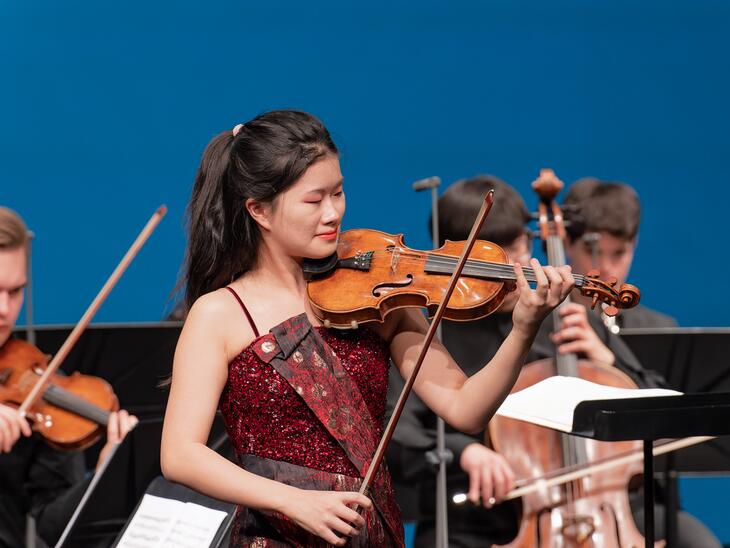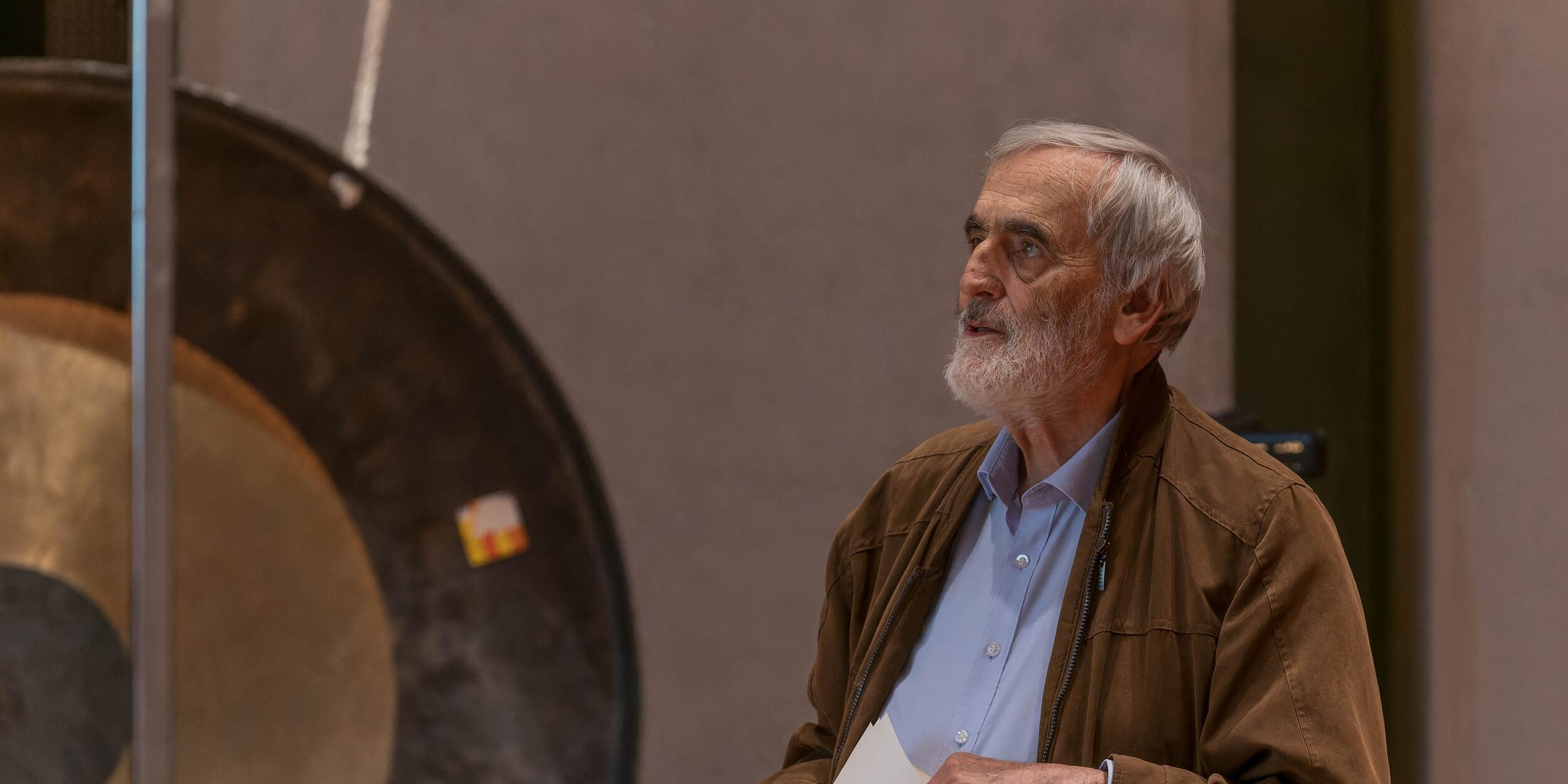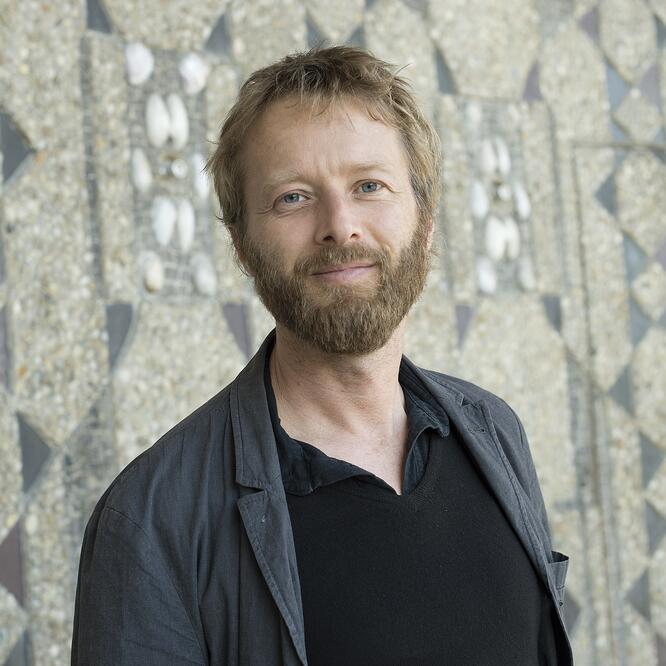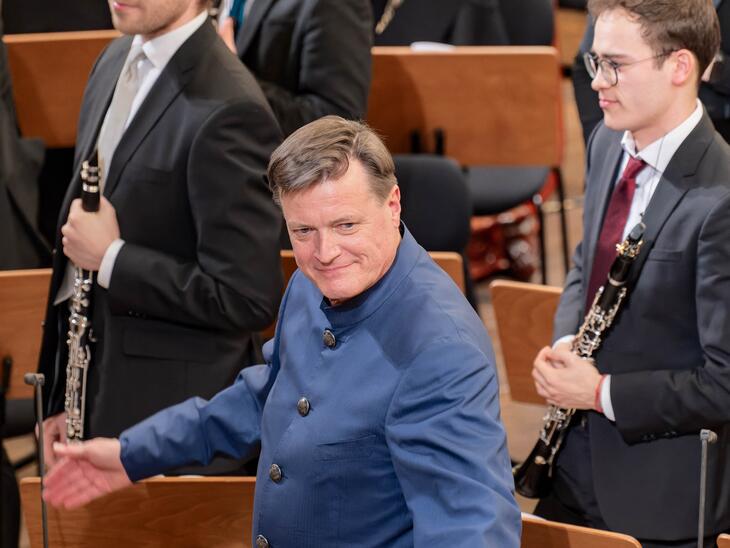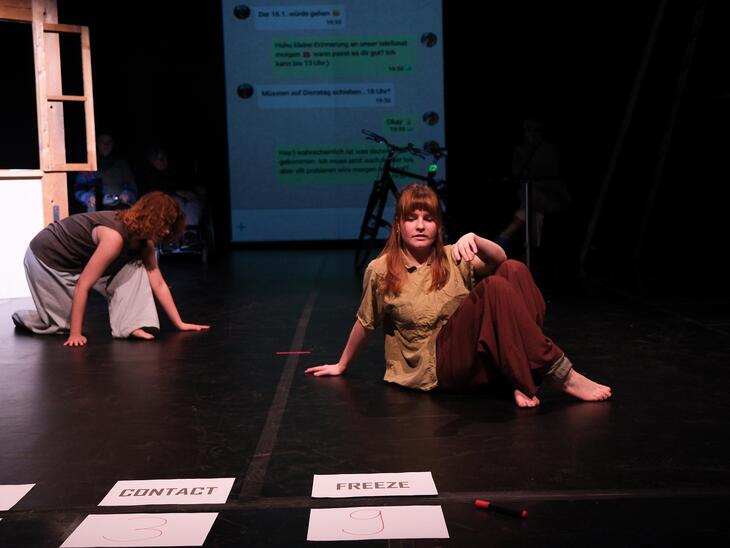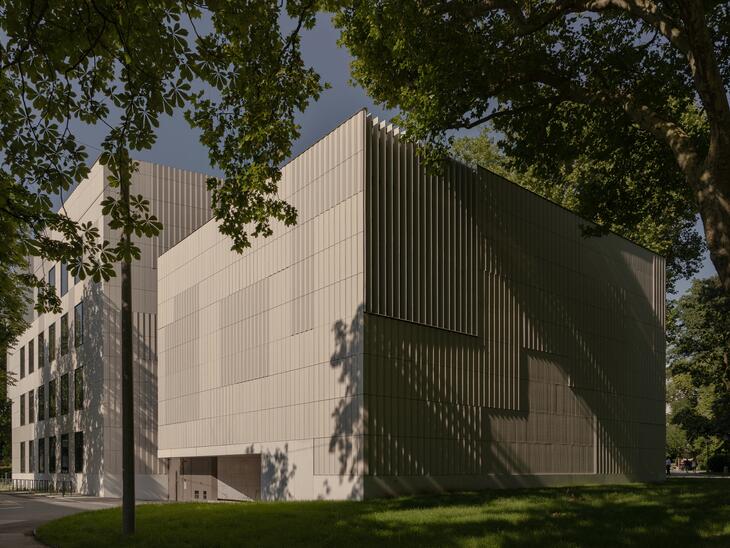Helmut Lachenmann can be called with a clear conscience one of the most important composers of the present day, of the experimental avant-garde and a master of the noisy . His rebellion against the "aesthetic apparatus", against the pure euphony of music at a time when the familiar defined the concept of beauty, was more than revolutionary. In place of all conventionally produced sounds, Lachenmann brings a whole universe of noises: Scratching, breathing, scraping, hissing, pausing, a scanning of the niches and interstices of music. Decisive for his compositional development and the ability to always question the familiar were the musical encounters at the Darmstadt Summer Courses for New Music in 1957 with John Cage and with Luigi Nono, whom he followed to Venice as his only student. Already last year, on the occasion of Helmut Lachenmann's 85th birthday, the Mozarteum University, together with the Mozarteum Foundation, planned a comprehensive program with the legendary composer as part of DIALOGUE 2020. "Then the pandemic struck.
But
we
agreed to set up the program planned for last year again as a co-production in 2021. It would have been a really beautiful story, with lectures, public rehearsals, performances of chamber music pieces with Helmut Lachenmann, students and with the
oenm. Unfortunately, we have now had to cancel this as well," regrets Johannes Maria Staud, who was instrumental in the organization and planning. Although the composer and university professor for composition at the Mozarteum University pursues a different aesthetic in his work, Helmut Lachenmann has also influenced him and his generation. Lachenmann liberates perception in a multidimensional, perspectival examination and structures it in a new and thoughtful way. A critical statement with the language of music: "Helmut Lachenmann has fought many battles that we no longer have to fight. His work has made many things easier for us coming composers*. He is an epochal figure". At 86 years old, Helmut Lachenmann is still authentic and curious. He is currently touring throughout Europe and "fully booked," holding regular workshops and taking time to be present at rehearsals of his works. His creative history spans more than 50 years, but even decades after he composed his great works, he is still on hand to provide musicians with tips and suggestions: The focus for him is on imparting knowledge and ways of thinking. "He is a wonderful educator, he can talk in an incredibly exciting way. Music history would have been different without him. He established all the sound worlds, invented and notated an insane amount - so he s not only inspiring to students, but to all composing people in this world. He was himself a professor of composition in Stuttgart for a long time and has had a decisive influence on many composers with his work," says Johannes Maria Staud. Helmut Lachenmann is exemplary for the modern concept of progress, a profoundly experimental approach to breaking up comforts and habits: At the performance of his "Tanzsuite mit Deutschlandlied" in 1980 in Donaueschingen the audience became increasingly restless in the face of the highly concentrated orchestra on the podium, whose instruments emitted only hissing, hissing and scraping. The first laughs, jeers, a signaled "Please play already!".
But the concert had long since begun. Helmut Lachenmann interrupted with a loud "Stop! Please listen first to the end of the piece and then protest ", and the musicians began again from the beginning. From that moment on, the audience listened riveted . This idea of progress is also "not unappealing" to Johannes Maria Staud, as he says. Music is not a candy, but an activity that one has to pursue intellectually and for which one must also fight. "One notices in Lachenmann s later works already a joy in comprehensibility without, however, diluting the radicality of the claim. Everything he does, he does fully. And naturally demands a full sympathy from both his listeners and the performers." Only this sympathy leads to the great experience, as Elisabeth Gutjahr also looks with the highest esteem for Helmut Lachenmann on one of his greatest successes "Walter Benjamin is credited with the thought of artistic beauty as a conciliatory inheritance of the terrible myth, refraction and salvation at the same time and hardly any composer of the 20th century comes close in his work. Century comes so close to an equivalent in his work. Especially in his opera "The Girl with the Matchsticks' a breathtaking reconciliation succeeds: Andersen's deadly sad fairy tale, the deadly sad story of a Gudrun Ensslin - like Lachenmann, coming from a Swabian pastor's family, hardly younger than him, also highly gifted and striking - combine with texts by Leonardo Da Vinci, Ernst Toller and Friedrich Nietzsche in a musically completely autonomous world. Here seemingly unmusical noise is treated with as much esteem as the noblest sound, breaths and drafts remarkable sensual moments of musical happening. Already his works Consolation I + II for vocal ensemble foreshadowed that Lachenmann might once succeed in reaching out to the angel of history." The radical thoughtfulness of his works, the highly precise compositions and the exact tracing of how sounds are created, are characteristic of the sound repertoire, from which Lachenmann's world is built. A universe that is dedicated to thinking further and going further
and that - always provided with a socio-political note - gives an optimistic outlook on a better world. Even if it shakes some performers or listeners to their core,
just as Lachenmann himself was shaken to the foundations of his musical world in 1954 at a matinee by John Cage and David Tudor. The composers' "fearlessness" encouraged him in his own work. "The moments when
you question everything you re doing, there are always moments like that. And I would definitely say that is the 'Helmut Lachenmann moment'. To write music that works with completely different parameters - that is music that builds its own laws. Helmut Lachenmann brought an iconoclastic moment this revolutionary potential suits him." Will there be an alternate date for the Helmut Lachenmann Days at the Mozarteum University? "As soon as times permit, we want to welcome Helmut Lachenmann to Salzburg. We hope for 2022", Elisabeth Gutjahr looks optimistically into the future. And Johannes Maria Staud also locates great interest: "For many students with us, Helmut Lachenmann is a cult figure, there is a lot of commitment from many sides. We are working on it and doing our best to catch up with the program." (First published in Uni-Nachrichten / Salzburger Nachrichten on December 11, 2021)
